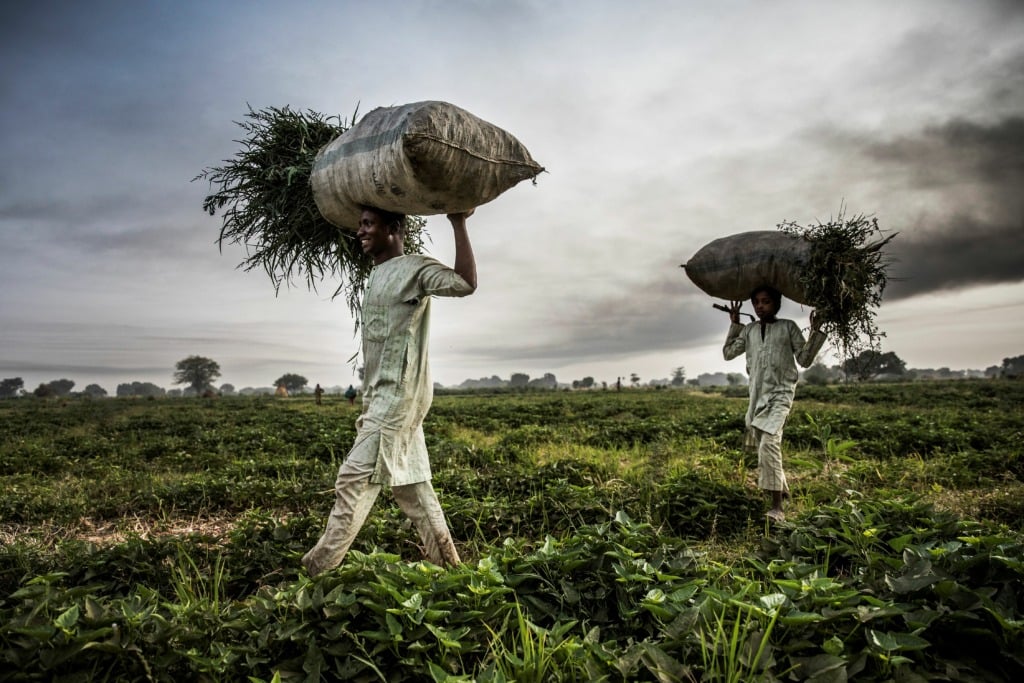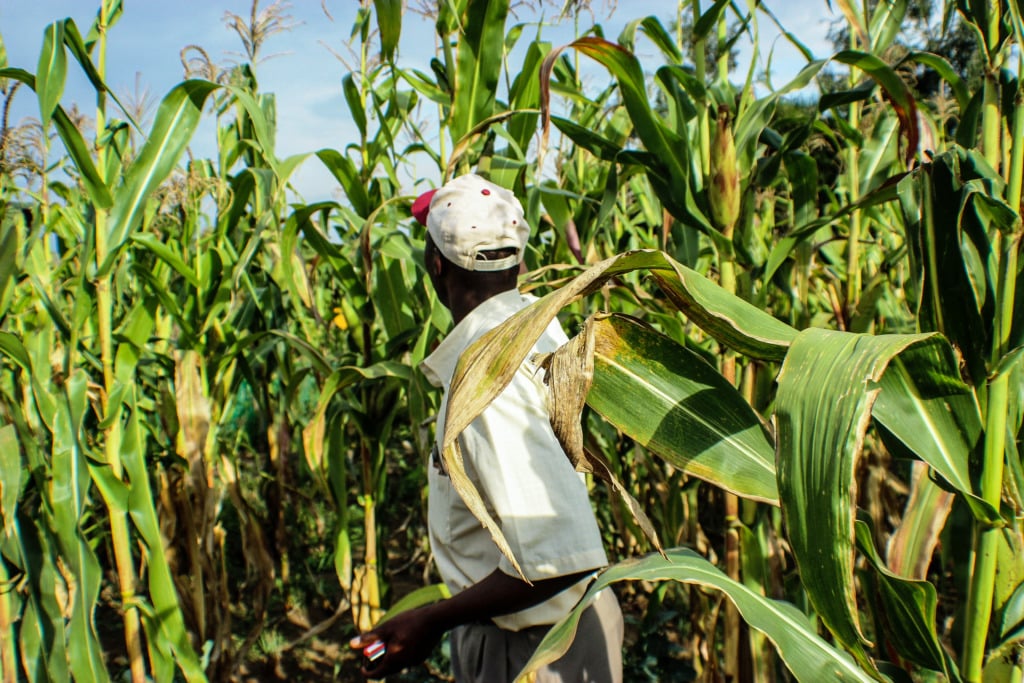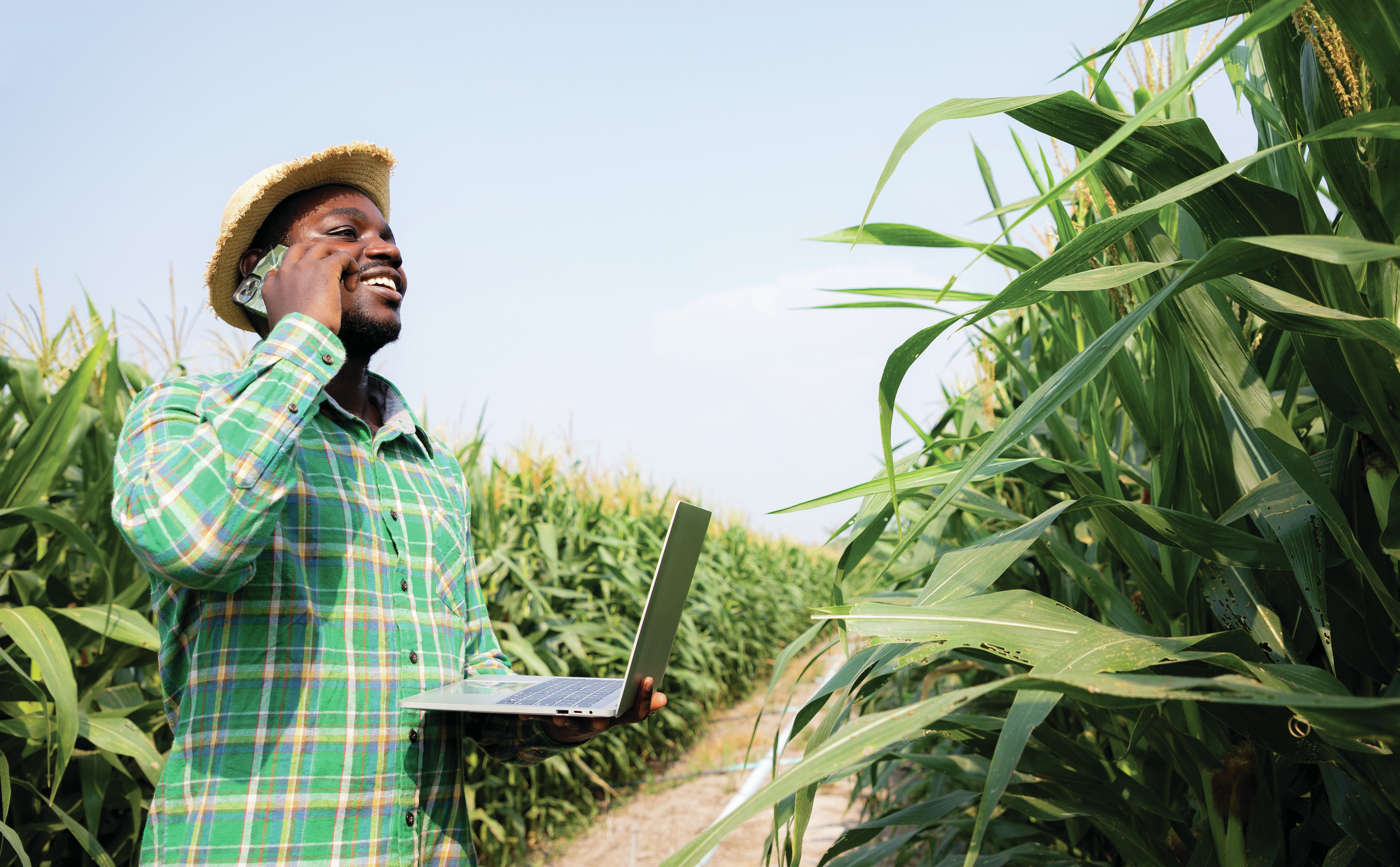In a remote address to delegates at the eighth edition of the Forum on China-Africa Cooperation (FOCAC) in Dakar last November, Chinese President Xi Jinping laid out a tantalising future for Africa-China trade as screens at the entrance declared: “Relations between China and Africa have entered a new golden age.”
Alongside generous loans, the Chinese president promised to increase China’s imports from Africa to $300bn in total over the next three years, and to $300bn a year by 2035.
Happiest, arguably, were Africa’s agricultural producers. With a population of 1.4bn, no country on earth imports more food than China. In 2019 its agro imports exceeded all 27 European Union countries combined. Meanwhile, farming is Africa’s main source of economic activity, and its biggest job provider. Among Xi’s proposals were even “green lanes” to speed up inspections of African agricultural imports.
Nine months on, however, scant progress has been made. Many agricultural producers who were buoyed by Xi’s plans, and hoped to feed China’s vast population, feel thwarted by red tape and a lack of trade deals. Many are yet to send a single vegetable, fruit or crop shipment to the world’s most populous nation.
Trade deficits pose problems for Africa
The consequences extend far beyond the bottom lines of coffee or avocado producers. Most African countries have massive trade deficits with China making increasing exports one of the few avenues available to them to improve parity in trade and obtain the foreign exchange they need to service mountains of Chinese debt.
Meanwhile, many African countries, still struggling with the lingering economic effects of the coronavirus pandemic, which devastated African agriculture by shutting down international aviation and disrupting supply chains, say they cannot afford more Chinese loans. The issue has even become a political football in Kenya’s presidential election campaign. If exporting agricultural commodities to China cannot redress the trade imbalance, because of non-tariff and tariff barriers, experts say, countries must add value to their exports. Otherwise, African economies will fail to progress.
“Few believe that Africa should continue to count on Chinese loans to move forward,” Yun Sun, director of the China programme at the Stimson Center in Washington, tells African Business. “To improve its position in the global supply chain, Africa cannot forever be the supplier of raw materials and commodities. It has to add value to its products. That’s industrialisation.”
China’s improved ties with Africa, underpinned by decades of loans and support, caused two-way trade between China and Africa to hit a record $254bn last year.
However, in contrast with the $148bn of Chinese goods shipped to Africa, China only imported $106bn, most of it in the form of raw materials. Five oil and mineral-rich nations – Angola, Republic of Congo, DRC, South Africa and Zambia – accounted for almost three-quarters of Chinese imports.

Agriculture provides export opportunity for Africa
Amid calls for African nations to boost exports to China, agriculture seems an obvious choice. More than 60% of the population of sub-Saharan Africa are smallholder farmers and 23% of the region’s GDP comes from agriculture, according to McKinsey. Africa is also home to 60% of the world’s arable land. Demand is there: Chinese food imports have increased from $13bn two decades ago to $161bn in 2020, but just 2.6% of that total comes from Africa. Lauren Johnston, a professor at the University of Sydney’s China Studies Centre, says that African producers of crops like soybeans could even replace US farmers or help China diversify its supply in the face of tensions with the West.
To that end, and sensing that pandemic-ravaged African countries would be unlikely to tolerate more debt, Xi Jinping announced plans in Dakar to massively boost African imports to China, with a particular focus on agriculture. China would, he said, launch 10 poverty reduction and agricultural projects for Africa and send 500 agricultural experts to the continent. It would aim to reach $300bn in total imports from Africa in the next three years, which Sun says is feasible based on 2021 trade levels.
Beijing would also open “green lanes” to prioritise inspection of agricultural goods heading to China from Africa and further extend the list of products enjoying tariff free treatment for the least developed countries that have diplomatic relations with China, many of them African.
China also plans to provide $10bn of trade financing to support African exports, undertake 10 connectivity projects for the continent and deploy an expert group to discuss economic cooperation with officials at the African Continental Free Trade Area (AfCFTA).
Chinese regulations pose a barrier
One company that greeted the proposals with excitement was Kakuzi, Kenya’s largest producer of avocados, particularly after the East African powerhouse struck an export deal with China for fresh avocados in January, secured after years of lobbying. Kenya already dominates Africa’s avocado market and exported $154m worth last year, primarily to Europe.
However, to date no shipments have left from Kazuki or nine other Kenyan avocado exporters that passed inspections, according to Reuters. Chinese importers want to do their own audits and, based on the previous experience of African fruit producers, it could take a full decade to get Chinese-bound avocados out of the door.
South Africa’s citrus industry had a head start, signing its first deal with Beijing in 2004. It exported 162,000 pallets of fruit to China in 2021. But the UK and the EU, which also have strict safety standards, remain by far the leading destination for South African citrus, accounting for 44% of exports last year.
“When you want to go to China, you have to get a separate protocol for each agricultural product. It averages at about 10 years for each product’s protocol to be concluded,” Justin Chadwick, chief executive of the Citrus Growers’ Association of Southern Africa, told the news agency. “Unfortunately, China does this one product at a time.”
Nonetheless, he said the hoops were well worth jumping through: “[China has] been an incredible market for SA citrus.” Namibia took nine years to satisfy Chinese regulators after signing a beef export deal, leading to the first shipment in 2019.
African producers were already struggling from the after-effects of coronavirus, which made seeds, fertiliser and animal feed, upon which they rely to maximise yields, scarce. Many agricultural SMEs were forced to downsize or close during the pandemic. In East Africa, they also had to reckon with a locust infestation and severe drought.
Kenya’s agriculture sector contracted by 0.2% in 2021, compared to 5.2% growth in 2020.
A spokesperson at the Alliance for a Green Revolution in Africa (AGRA), which advocates for farmers, tells African Business that African crop producers are generally unproductive compared with growers elsewhere, making them less competitive in the Chinese market.
“For bulk imports by China, African producers are struggling to compete with countries with huge farms and modern agriculture [such as Brazil, the EU, the US, Australia and New Zealand]. If Africa can address productivity issues, and increase technology adoption by farmers, the Chinese market will represent a huge opportunity for African farmers.”
Chinese officials have said they want to help African farmers improve their food safety procedures, which would boost exports in the future, but some commentators say current phytosanitary regulations for African imports are a barrier to trade – and they show no signs of easing.
“There is an issue with food safety. China won’t import anything that risks its own food supply and it may take a while until China feels African food is safe enough,” says Johnston. Still, she says, “I think it is a big incremental opportunity, including and especially in producing lower quality agricultural products that are used as animal feed, for example. And then other products, like coffee beans, sesame seeds, chillies, these sort of safer products.”
While the EU requires inspections at the point of exit, Kakuzi said it spent weeks showing how it follows its avocados from seed to sellable fruit. Chinese authorities require inspections of orchards, packing facilities and fumigation areas, experts say.

Continent-wide trade deal could ease the way for Africa
Another issue is that Beijing prefers to negotiate trade deals on a country-by-country basis, meaning it does not have a continent-wide trade deal that could make life easier for producers.
Yun says the relatively young trading relationships with many African countries are a hindrance: “On trade barriers, some of it is technical, such as the tariff, customs control and inspection. Some of it is the lack of knowledge, the distance and cost of transportation. China is still a relative latecomer in the exploration and utilisation of Africa’s agricultural potential.”
Johnston adds that “China is rapidly pushing food technology processes – Jack Ma [the founder of Alibaba] was visiting the Netherlands not so long ago looking at how they produce so much food from so little”, raising concerns that Beijing could have less need for African imports in the future.
Meanwhile Yoweri Museveni, Uganda’s president, told Bloomberg before the FOCAC forum that he hoped for zero-tariff trade. “What I will ask from them is to allow our products to enter their market tax-free. They had allowed a few but many are not allowed. We would like a broader spectrum of access to the market without tax or a quantitative limit,” he said.
Around 80% of Uganda’s exports are agricultural, chiefly coffee, tea and cotton. The East African country sent goods worth $44m to China last year, but its imports from China topped $1bn.
In 2021, Nigeria imported $23bn worth of Chinese goods, but sent just $1.85bn in the other direction. Kenya’s annual trade deficit with China is around $6.5bn. In 2020 it exported a measly $149m to China, mostly minerals.
Observers disagree on how concerning such deficits are, but they do not help low-income African countries ease debt burdens or fill up vital foreign exchange reserves. In Kenya and elsewhere, meanwhile, ordinary people are struggling amid surging prices of food and fuel.
Advocates of African agriculture say countries need to sign deals with China that have farming at their heart and remove tariff and non-tariff barriers. Johnston said China could even support increased agricultural trade between African countries and invest to increase farming outputs over time. Others, though, say Africa should instead push away from raw commodities and into value-added products.
Unless fortunes change soon, African exporters fear their dreams of one day feeding China will never bear fruit.
Want to continue reading? Subscribe today.
You've read all your free articles for this month! Subscribe now to enjoy full access to our content.
Digital Monthly
£8.00 / month
Receive full unlimited access to our articles, opinions, podcasts and more.
Digital Yearly
£70.00 / year
Our best value offer - save £26 and gain access to all of our digital content for an entire year!
 Sign in with Google
Sign in with Google 



